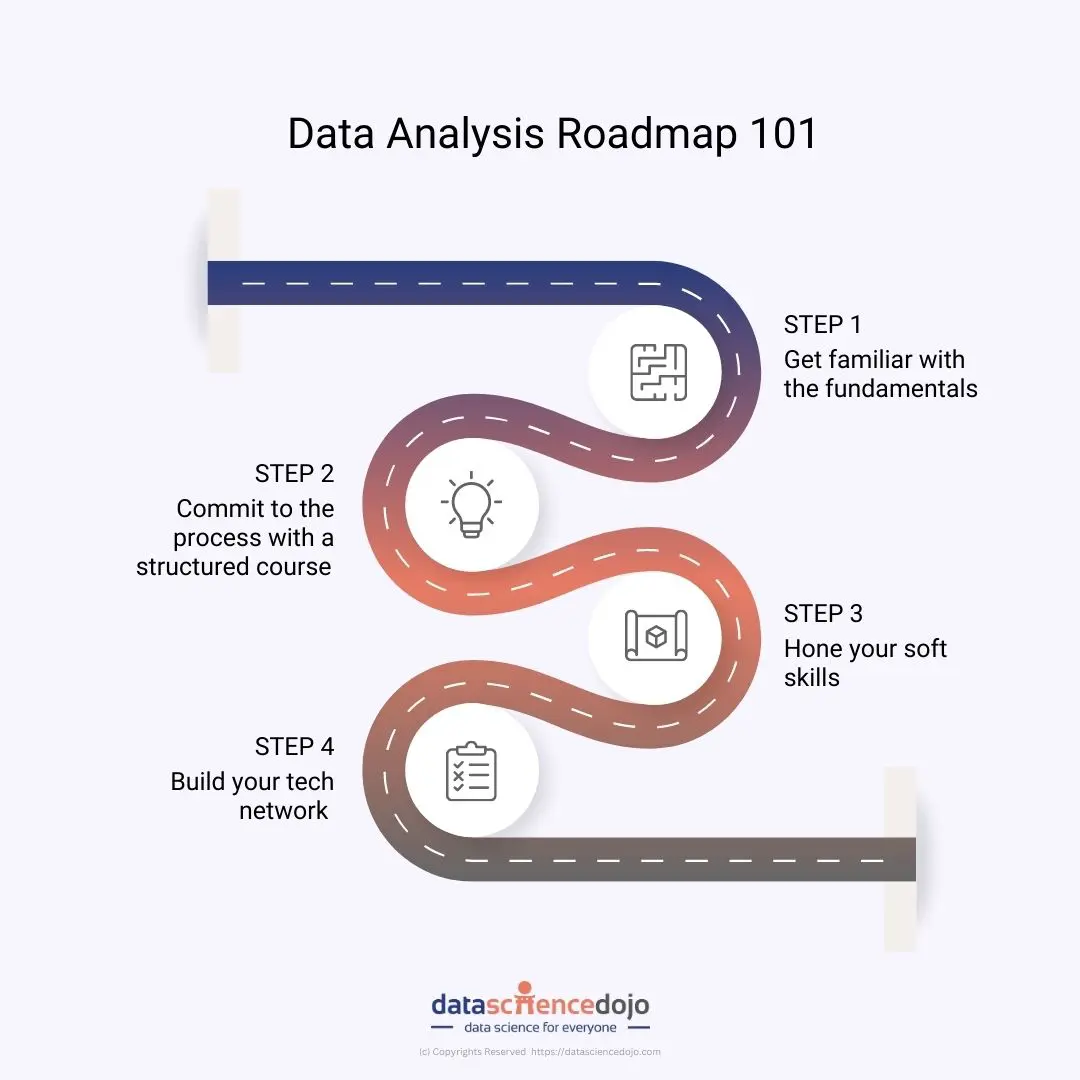If you are a novice in the field of data analysis or seeking to enhance your proficiency, a meticulously devised data analysis roadmap can serve as an invaluable tool for commencing your journey. Essentially, a data analysis roadmap encompasses a meticulously curated sequence of procedural guidelines that elucidate the fundamental stages inherent in the practice of data analysis. By adhering to such a roadmap, you can rest assured that you are undertaking the requisite measures and obviating the inadvertent omission of critical elements.
Are Data Analysts in demand in 2023?
The world is generating more data than ever before. In fact, it is estimated that by 2025, the global datasphere will be 175 zettabytes in size. This data is being generated by everything from our smartphones to our smart homes to our cars
As the amount of data grows, so does the need for data analysts. Data analysts are responsible for collecting, cleaning, and analyzing data to extract insights. These insights can then be used to improve business decisions, optimize operations, and develop new products and services.
The demand for data analysts is expected to continue to grow in the years to come. In fact, a recent report by the World Economic Forum found that data and AI is one of the seven high-growth emerging professions. Of all seven professions identified, data and AI shows the highest growth rate at 41% per year.
There are a number of reasons why the demand for data analysts is so high. First, the amount of data being generated is increasing exponentially. Second, businesses are increasingly using data to make decisions. Third, there is a shortage of qualified data analysts in the workforce.
If you are considering a career in data analytics, there are a number of things you can do to prepare. First, you should develop your skills in data analysis and data science. Second, you should gain experience working with data. Third, you should network with other data analysts.
Here are some additional reasons why data analysts are in demand in 2023:
- The increasing use of big data analytics by businesses to improve decision-making and operations.
- The growing need for data-driven marketing and advertising.
- The rise of artificial intelligence and machine learning, which require data analysts to help interpret and act on the insights generated by these technologies.
Step-by-step data analysis roadmap

Step 1: Get familiar with the fundamentals
Read about data analytics and its applications in the real world. Familiarize yourself with different types of data analysis and techniques such as regression analysis, factor analysis, cohort analysis, cluster analysis, and time-series analysis.
Start practicing with data analytics tools like Microsoft Excel by working with open source datasets and performing basic tasks such as creating pivot tables and using formulas.
Step 2: Commit to the process with a structured course
Research and choose a specialized data analytics program or course that fits your schedule, budget, and offers the following:
Mentorship to provide guidance and feedback. Practical, hands-on curriculum with exercises and projects to build your skills and portfolio. Career coaching and job guarantee to assist with finding employment.
Step 3: Hone your soft skills
Identify and enhance your soft skills, such as problem-solving, research, and presentation skills. Look for opportunities within your current job to develop these skills, such as running a small research project or tackling a specific business problem.
Seek additional opportunities outside of work, such as attending meetups or joining online communities related to data analytics.
Step 4: Start networking
Connect with professionals in the data analytics field through platforms like LinkedIn, data analytics groups, and local meetups. Take advantage of your student community or online student groups to connect with peers and gain support. Networking can provide career prospects, mentorship, and learning opportunities, so embrace it as an essential part of your journey.
Leanring never stops – Prepare for the job market
Build a portfolio showcasing your data analytics projects and practical skills. Seek feedback from mentors or professionals to improve your portfolio presentation.Optimize your online presence, particularly your LinkedIn profile, to highlight your skills and career goals.
Prepare for job interviews by familiarizing yourself with common data analytics interview questions and how to answer them effectively.
By following these steps, you can progress from an aspiring data analyst to a fully-fledged professional, equipped with the necessary skills, knowledge, and network to succeed in the field. Remember to stay committed, continue learning, and adapt to the evolving landscape of data analytics.
Additional Tips:
Here are some additional tips for creating a data analysis roadmap:
- Start small. Don’t try to do too much at once. Start with a small project that you can complete in a reasonable amount of time.
- Be flexible. Your roadmap may need to change as you learn more about your data and your goals.
- Get help. There are many resources available to help you with data analysis. Don’t be afraid to ask for help from a mentor, a colleague, or an online community.
Data analysis can be a daunting task, but it doesn’t have to be. By following a data analysis roadmap, you can break the process down into manageable steps and make sure that you are on the right track.
In a nuthsell
Data analysis is a powerful tool that can help businesses of all sizes improve their operations and make better decisions. By following a data analysis roadmap, you can ensure that you are taking the right steps and that you are not missing anything important.
If you are new to data analysis, or if you are looking to improve your skills, I encourage you to start by creating a data analysis roadmap. This will help you get started on the right foot and make sure that you are on the path to success.

